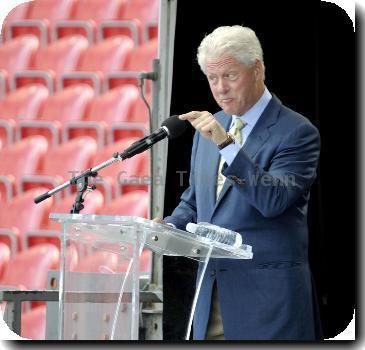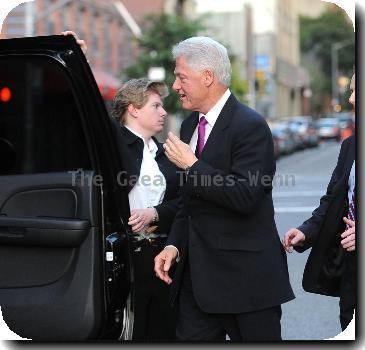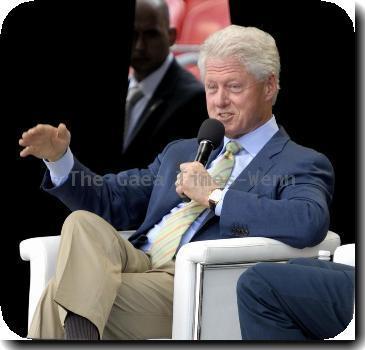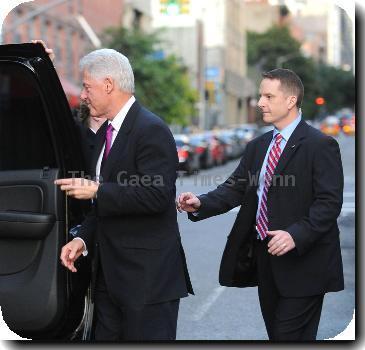UN says 36 UN personnel killed, nearly 200 missing, 8 rescued from rubble of Haiti quake
By APThursday, January 14, 2010
UN: 36 UN personnel killed, nearly 200 missing
UNITED NATIONS — Crews rescued a security guard Thursday from the U.N. headquarters building that collapsed in the Haiti earthquake, “a small miracle” as 36 U.N. workers were confirmed dead and nearly 200 remained missing, the head of the world body said.
Secretary-General Ban Ki-moon said the crew located Tarmo Joveer, an Estonian guard, under about 4 meters (13 feet) of rubble. He was given water through a rubber tube until he was pulled out covered in dust but unhurt, the U.N. said.
Ban said the U.N.’s mission chief, Hedi Annabi, and his chief deputy, Luis Carlos da Costa, are among roughly 100 people still buried in the rubble of the five-story building. The other missing U.N. personnel were in other buildings and facilities.
“It was a small miracle during a night which brought few other miracles,” Ban said.
Speaking by videoconference from Port-au-Prince, David Wimhurst, a spokesman for the U.N. peacekeeping mission, said Joveer “walked out of there unscathed. … He was very, very grateful to be alive.”
Wimhurst said early Thursday afternoon that the dead include 19 U.N. peacekeepers, four international police officers and 13 civilians. The injured include 26 military, nine police and 38 civilians, of whom 24 are Haitian nationals.
Wimhurst said about 160 national and international civilian staffers, 18 police, and 10 military personnel are still missing.
“I think the first 72 hours will be critically important,” Ban said. “Now we are approaching 48 hours… I hope that we will have more and more survivors.”
“The priority remains emergency search and rescue. People remain alive under the rubble, and we must save as many lives as we can,” he said.
Rescue teams from China, the U.S., France and the Dominican Republic have arrived with dogs and listening equipment and Ban said more teams will be arriving soon.
Wimhurst said a French team was still working at the collapsed U.N. headquarters building, formerly the Christopher Hotel, which was built into the side of a hill.
“In the coming days, sadly, we must expect as the search and rescue effort gives way slowly to the removal of very heavy — very, very heavy — concrete and rubble that we will start to recover more bodies,” he said.
When the earthquake struck just before 5 p.m. Tuesday, Wimhurst said the entire headquarters building began “shaking violently” and he was holding on to furniture “to stop myself being thrown around the room, and praying that the big concrete pillar in the middle of my office would not break and bring the whole building down on me.”
After the shaking subsided, he saw that the central part of the headquarters building had collapsed, blocking access to the outside. Eventually, about 15 people left the wrecked building by going out his window and down three stories on “a rather rickety ladder,” he said in the first eyewitness account of the building’s collapse.
The U.N. chief said he requested helicopters, engineers, medical equipment and medical items from the United States, “as much as they can provide,” and requests for transport helicopters and other critical assets will be made to many other countries and international partners.
Assistant Secretary-General for Peacekeeping Edmond Mulet, sent by Ban to take charge of the U.N. mission and coordinate the international relief effort, arrived in Port-au-Prince Thursday afternoon, the U.N. Peacekeeping Department said.
“He will immediately begin to work to coordinate the assistance and rescue operations, in close coordination with the Haitian leadership, including President (Rene) Preval,” Ban said.
The U.N.’s Haitian mission — spread across the country — includes 7,000 peacekeeping troops, 2,090 international police, 490 international civilian staffers, 1,235 local civilian staffers and 215 U.N. volunteers, he said. The force, known as MINUSTAH, was brought in after a bloody 2004 rebellion following decades of violence and poverty in the nation.
The secretary-general said the 3,000 peacekeepers in and around Port-au-Prince “are patrolling and they are trying to maintain law and order around the city.”
“So far, I think we have been able to maintain such order,” Ban said. “We are extremely careful and we will pay attention to prevent any crimes, any violence.”
Wimhurst said U.N. peacekeepers and police are also helping to distribute aid and pick up bodies.
Since the aid effort is just gearing up, he said, people who have lost everything unfortunately are “slowly getting more angry and impatient.” He said one problem is that the Haitian national police “are not visible at all, they simply vanished. … So all law and order requirements have to be maintained by us.”
With the U.S. sending 3,500 troops and massive aid to Haiti, the secretary-general was asked whether the U.S. will answer to the U.N. or whether it will operate independently.
Ban said he told the U.N. General Assembly on Wednesday “that all international aid and assistance should be coordinated with MINUSTAH, the United Nations” with Mulet in charge of coordinating the effort.
Did that mean that Mulet, who was Annabi’s predecessor as the top U.N. envoy in Haiti, would direct the U.S. military?
“The force commander of the U.N. peacekeeping operations will coordinate, I hope, with the U.S. military assistance team,” Ban said. “I am sure that the military leaders will fully coordinate with each other.”
U.N. humanitarian chief John Holmes said the Americans “will be a huge presence and very dominant, but we’ve got very good relationships with them and we’re working extremely well with them. They accepted — or volunteered that the U.N. should coordinate the humanitarian relief.”
Holmes said he doesn’t expect the U.S. to put their troops under U.N. military command, but the U.N. will coordinate the humanitarian operation as a whole “which will be a mostly civilian operation.”
Ban said Holmes will launch an emergency appeal for Haiti at U.N. headquarters on Friday afternoon, hopefully alongside former U.S. president Bill Clinton, his special envoy for Haiti who had been trying to raise money to rebuild the impoverished Caribbean nation after several devastating hurricanes in 2008. Holmes said “clearly it will be hundreds of millions of dollars.”
Tags: Accidents, Bill Clinton, Caribbean, Government Regulations, Haiti, Industry Regulation, Latin America And Caribbean, North America, Search And Rescue Efforts, United Nations, United States




